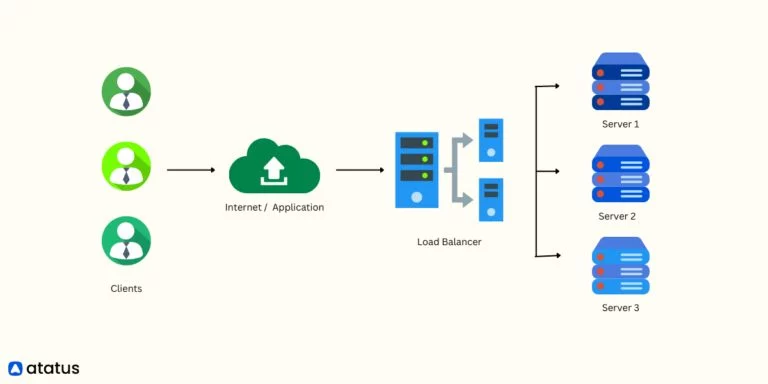Introduction to PHP

Table of Contents
PHP, or Hypertext Preprocessor, is a widely used open-source server-side scripting language that is especially suited for web development and can be embedded into HTML.
Originally created by Rasmus Lerdorf in 1994, PHP has evolved significantly over the years from its humble beginnings as a simple scripting tool for personal web pages to a robust language powering millions of websites worldwide.
It is particularly favored for its ease of use, flexibility, and speed, which make it an ideal choice for dynamic web page development.
The popularity of PHP in web development is underscored by its extensive use in creating everything from small websites to complex web applications.
It powers popular content management systems like WordPress, Joomla, and Drupal, which are foundational to a vast number of websites on the internet. This widespread adoption is largely due to PHP’s ability to efficiently handle data-heavy sites and its seamless integration with various databases and HTML.
From a business perspective, PHP offers several compelling advantages. (Refer to the following section)
Its cost-effectiveness and being an open-source language, means businesses can develop and maintain their web applications at a lower cost. PHP’s compatibility with various platforms and its large community of developers provides excellent support and resources for troubleshooting and development.
Moreover, PHP’s capacity to scale allows businesses to expand their web applications as they grow, ensuring that their digital infrastructure can evolve with their needs.
This table shows PHP at a glance.
Aspect | Details |
Language Type | Server-side scripting |
Initial Release | 1994 |
Popular Use Cases | Web applications, Content management systems (WordPress, Joomla, Drupal) |
Key Benefits | Cost-effective, Flexible, Compatible with various platforms, Scalable, Strong community support |
Advantages of Using PHP for Business Applications
PHP’s cost-effectiveness is one of its most appealing features for business applications.
As an open-source language, PHP allows businesses to reduce development costs significantly. There is no need to invest in expensive software licenses or subscriptions.
The market is also replete with affordable PHP development tools and resources, further diminishing the financial burden on businesses, and making it an economical choice for startups and established companies.

The rich ecosystem surrounding PHP is another significant advantage.
It boasts comprehensive documentation and a plethora of frameworks and libraries, such as Laravel, Symfony, and Zend, which streamline the development process and enhance functionality. The large PHP community actively contributes to a vast pool of pre-built modules and plugins, facilitating quicker and more efficient development cycles.
This extensive support network not only aids in rapid problem-solving but also in learning and adopting best practices in PHP development.
PHP’s ease of integration greatly enhances its utility in business applications.
It is compatible with a wide range of databases, including MySQL, Oracle, and PostgreSQL, and servers like Apache and Nginx. This compatibility, combined with PHP’s seamless integration with HTML and other web technologies, allows for the creation of dynamic web applications that can easily interact with various systems and infrastructures.
Regarding scalability and performance, PHP is well-equipped to handle growing business needs.
Many large-scale platforms, such as Facebook and Wikipedia, utilise PHP to manage vast amounts of data and high-user traffic.
Performance optimisation techniques in PHP, such as proper memory management, effective use of caching, and bytecode compilation, help in fine-tuning applications to meet specific performance criteria.
Advantage | Details |
Cost-Effectiveness | Open-source, no license fees, affordable tools |
Rich Ecosystem | Extensive documentation, frameworks (Laravel, Symfony), large community, pre-built modules |
Ease of Integration | Compatible with many databases and servers, integrates well with HTML |
Scalability and Performance | Used in large-scale applications, supports performance optimization techniques |
PHP Frameworks and Tools
PHP frameworks and development tools play a crucial role in enhancing the efficiency, security, and manageability of PHP applications. These frameworks provide structured, reusable, and maintainable code, making it easier for developers to build complex applications.
Popular PHP Frameworks
Laravel- One of the most popular PHP frameworks due to its elegant syntax and rich features such as robust routing, easy authentication, and powerful queue library.
Laravel simplifies the development process while maintaining application functionality, making it ideal for business applications that require complex, scalable solutions. Its ecosystem also includes Homestead, a pre-packaged Vagrant box that provides a development environment without requiring PHP or any other server software on your local machine.


Symfony – Highly favoured for enterprise-level applications due to its modular component system and extensive developer tools. Symfony is designed to build high-performance complex web applications and is known for its stability and reliability.
It integrates with broader enterprise systems and workflows seamlessly, making it a preferred choice for large-scale projects.
CodeIgniter – Known for its small footprint and straightforward installation with minimal configuration, making it suitable for developers who want a simple yet powerful toolkit.


Zend Framework (now Laminas Project) – Offers an object-oriented code base and a wide range of functionalities such as authentication, services, and forms, which are essential for enterprise applications.
Development Tools
Integrated Development Environments (IDEs) such as PHPStorm and Visual Studio Code significantly enhance PHP programming efficiency.
These IDEs provide features like syntax highlighting, code completion, and version control, which streamline the coding process.
PHPStorm, for instance, is tailored specifically for PHP and understands the code at a deep level, offering top-notch coding assistance, quick navigation, and error checking.
Debugging and testing tools are essential for ensuring the quality and performance of PHP applications. Xdebug is a popular debugging tool that integrates with many IDEs and provides features like stack traces, breakpoints, and an interactive debugger.
For testing, PHPUnit is the standard for unit testing PHP applications, allowing developers to write comprehensive test suites that ensure code behaves as expected.
Framework/Tool | Features |
Laravel | Elegant syntax, robust features, ideal for complex business applications |
Symfony | Modular system, stable for enterprise applications |
CodeIgniter | Small footprint, easy setup, straightforward toolkit |
Zend Framework | Object-oriented, comprehensive functionalities |
PHPStorm | Deep code understanding, coding assistance, error checking |
Xdebug | Debugging with stack traces, breakpoints, interactive debugger |
PHPUnit | Standard for unit testing, ensures code reliability |
These frameworks and tools collectively enhance the development, maintenance, and scalability of PHP applications, catering to a wide range of business needs from small-scale projects to large enterprise solutions.
PHP in Enterprise Application Development
PHP’s role in enterprise application development is significant due to its robust features that cater to complex business requirements.
Enterprises often require scalable, secure, and high-performing applications, and PHP provides a solid foundation to build these systems.
One of the key strengths of PHP in the enterprise realm is its flexibility.
PHP can be easily customised to fit the specific needs of businesses, allowing developers to create bespoke solutions that integrate seamlessly with existing corporate IT infrastructures.
This adaptability extends to various operating systems and platforms, making PHP a versatile choice for enterprises operating in diverse IT environments.
Security is a paramount concern in enterprise applications, and PHP’s continuous updates and improvements address security challenges effectively.
The active PHP community and its comprehensive ecosystem contribute to the development of secure PHP applications by providing timely security patches, advanced tools for vulnerability assessment, and best practices for secure coding.

PHP also excels in handling enterprise databases, which are crucial for large-scale applications. It supports a range of database management systems, from MySQL to more sophisticated solutions like Oracle and Microsoft SQL Server, ensuring robust data handling capabilities.
PHP’s PDO (PHP Data Objects) extension provides a consistent interface for accessing databases, which simplifies database interactions and enhances security by preventing SQL injection attacks.
The table below summarises the key aspects of PHP in enterprise application development:
Feature | Benefits |
Flexibility | Customisable to business needs, compatible with various OS and platforms |
Security | Regular updates, active community support, tools for secure coding |
Database Support | Extensive support for multiple database management system (DBMS), enhanced security with PDO |
Scalability | Capable of handling large-scale applications, supports performance optimisation techniques |
PHP’s comprehensive capabilities make it a compelling option for enterprise application development, combining flexibility, security, and effective data management to meet the demanding needs of large businesses.
PHP for E-commerce and Web Applications
PHP is particularly advantageous for developing e-commerce and web applications due to its dynamic capabilities and robust features that cater to the specific needs of online businesses.
Its flexibility, ease of integration, and strong community support make it a preferred choice for many developers in the e-commerce sector.
One of the primary advantages of PHP in e-commerce is its ability to handle complex functionalities required by online stores such as product management, user authentication, and payment processing.
PHP frameworks like Magento, which is specifically designed for e-commerce, provide out-of-the-box features that simplify these tasks. Furthermore, PHP’s compatibility with various payment gateways and databases facilitates a smooth transaction process, which is crucial for maintaining the reliability and efficiency of e-commerce platforms.
PHP also offers significant benefits in terms of customisation and scalability.
E-commerce platforms often require specific customisations to cater to unique business models and customer needs. PHP’s open-source nature allows for extensive customisation without additional licensing costs.
As businesses grow, PHP’s scalability ensures that the web application can handle increased traffic and data loads without compromising performance.
The development speed of PHP is another critical advantage.
Thanks to a wide array of development tools and pre-built modules available within the PHP ecosystem, developers can rapidly build and deploy e-commerce applications. This speed to market is essential for businesses looking to capitalise on emerging market trends.
Below is a summary of the key advantages of using PHP for e-commerce and web applications:
Advantage | Details |
Functionality | Supports complex e-commerce needs like product management, user authentication, payment processing |
Customisation and Scalability | Highly customisable, scalable to handle growth in traffic and data |
Development Speed | Rich array of tools and modules for rapid development and deployment |
Integration | Seamless integration with databases and payment gateways |
PHP’s comprehensive features provide a strong foundation for developing sophisticated e-commerce and web applications, making it a top choice for developers aiming to build high-performing, scalable, and customisable online platforms.

Challenges and Considerations
Despite its numerous advantages, PHP development comes with its own set of challenges, particularly when handling high traffic and maintaining legacy applications.
Addressing these challenges requires strategic planning and execution to ensure the robust performance and longevity of PHP applications.
Handling High Traffic
High-traffic management is a critical aspect of PHP development, especially for applications expected to serve extensive user bases.
Effective strategies to manage high-load applications include implementing caching mechanisms, such as OpCode caching, to reduce the server load by storing precompiled script bytecode.
Load balancing across multiple servers can also distribute the traffic evenly, preventing any single server from becoming a bottleneck. Additionally, utilising PHP’s session management features can optimise the handling of user sessions in a high-traffic environment.

Real-world examples of PHP handling extensive user bases include popular platforms like Facebook and Wikipedia.
Facebook developed HipHop for PHP (HHVM) to compile PHP into C++ to improve performance and manage its massive traffic. Wikipedia leverages PHP’s flexibility and scalability to serve millions of users daily, showcasing PHP’s capability to handle high-load applications effectively.
Maintaining Legacy PHP Applications
Maintaining and updating older PHP applications presents another set of challenges.
Legacy systems may rely on outdated PHP versions that no longer receive security updates, making them vulnerable to attacks. Older codebases might not be compatible with modern frameworks and tools, hindering the application’s scalability and performance.
Strategies for modernising legacy PHP systems include gradually refactoring the codebase to adhere to modern PHP standards and practices. This can involve updating to the latest PHP version, integrating contemporary frameworks, and adopting new development methodologies like object-oriented programming (OOP).
Another approach is to incrementally replace parts of the legacy system with new components, allowing for a smoother transition without disrupting the application’s functionality.
Challenge | Strategies |
Handling High Traffic | Caching, Load balancing, Session management |
Maintaining Legacy PHP Applications | Refactoring, Updating PHP version, Integrating modern frameworks |
Addressing these challenges in PHP development requires a proactive approach to application design and maintenance.
By implementing effective strategies for managing high traffic and modernising legacy systems, developers can ensure that PHP applications remain secure, performant, and scalable.
How Websparks Can Help in Your PHP Project
At Websparks, we understand the intricacies and potential challenges of PHP development.
Whether you’re building a new application or maintaining a legacy system, our team of expert PHP developers is equipped to help you succeed.
We offer bespoke solutions to meet your specific business needs, ensuring that your web applications are cost-effective, scalable, and high-performing.
With our extensive experience in PHP frameworks and tools, we can streamline your development process, enhance functionality, and provide robust support.
Ready to take your PHP project to the next level?
Contact Websparks today for a free consultation and see how we can bring your vision to life!


